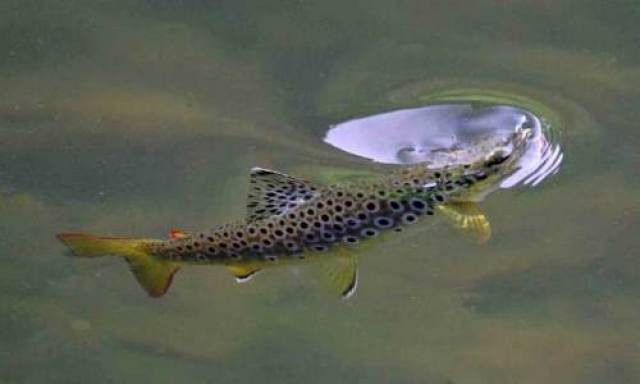#Angling - The Designated Salmonid Waters Bye-law was yesterday (Thursday 25 October) signed by the Minister for Communications, Climate Action and Environment, Richard Bruton.
The overall intention behind the bye-law is to afford additional protection to wild brown trout in seven distinctive State–owned waters where established stock control measures are already in place as a matter of existing policy.
The seven waters are Lough Sheelin in the Limerick Fishery District; Loughs Conn and Cullin the Ballina Fishery District; Loughs Corrib, Mask and Carra in the Galway Fishery District; and Lough Arrow in the Sligo Fishery District.
Sean Canney, who is succeeding Sean Kyne as Minister of State with responsibility for the inland fisheries sector, welcomed the bye-law as an important initiative for brown trout fisheries particularly in the West of Ireland.
“My predecessor Seán Kyne gave notice of his proposals to make the bye-law and also instigated a public consultation during which observations and views expressed across the full range of stakeholders,” said Minister Canney.
“I am happy as incoming minister to support Minister Kyne’s long-standing initiative and his hard work over all of 2018 in bringing the bye-law to fruition.”
Minister Kyne said: “As minister with responsibility for inland fisheries, I had carefully considered the submissions made in the public consultation.
“The bye-law relates to seven limestone lakes which are quite unique in terms of topography and trout habitat and have long been managed as wild brown trout fisheries via established stock management programmes. From that perspective, I considered that these waters are especially important.
“The bye-law was just about complete when I was taking on my new role and I am grateful for the support of Ministers Bruton and Canney for bringing it over the line,” he added.
The bye-law gives statutory status to the policy designation of this small number of distinctive waters and means that the waters concerned will continue to be managed primarily as brown trout waters.
Minister Kyne had indicated his view that the importance of these waters should be reflected by way of statutory designation and commenced that process in the department.
The bye-law also includes the prohibition on the introduction of fish to the designated waters which is consistent with the overall policy thrust of Inland Fisheries Ireland to manage these waters primarily as brown trout waters.
The advantages of this measure include addressing biosecurity and genetic concerns, control and management of the potential transfer of pathogens, and safeguarding against the introduction of alien invasive fish species.
The announcement came as Bord Iascaigh Mhara is hosting a two-day conference on the scientific developments within the salmon farming industry in Galway’s Maldron Hotel on 25-26 of October.
Outlining the purpose of the event, BIM’s Geoffrey Robinson said: “With increasing global demand for fish, aquaculture is now the fastest-growing animal food production sector in the world. Consequently, fish farming operations are rapidly evolving with new technologies and equipment constantly being developed.
“Part of BIM’s work is to help fish farmers to keep their operations at the cutting edge of technology and an event like this allows us to showcase the latest innovations to Irish operators. There will be a number of interesting developments discussed not least the growing use of cleaner fish and desalination systems.”
Twenty-five separate presentations from national and international experts will cover the latest research and technological developments within the sector on issues such as fish health and welfare, structural and service equipment as well as organic certification.
“While production volumes in Ireland are small by international standards, we have a reputation for excellence in organic salmon production and it is important that our operations maintain this high standard. Incorporating leading edge technologies can improve our production efficiencies and strengthen our sustainable practices,” Mr Robinson added.
In 2017 Irish salmon production increased 15.6% to 19,305 tonnes, with a value of €141.2 million. The industry employs 210 people, primarily in production sites along the west coast of Ireland. Irish salmon is exported to diverse markets across the EU, North America and the Near and Far East.































































